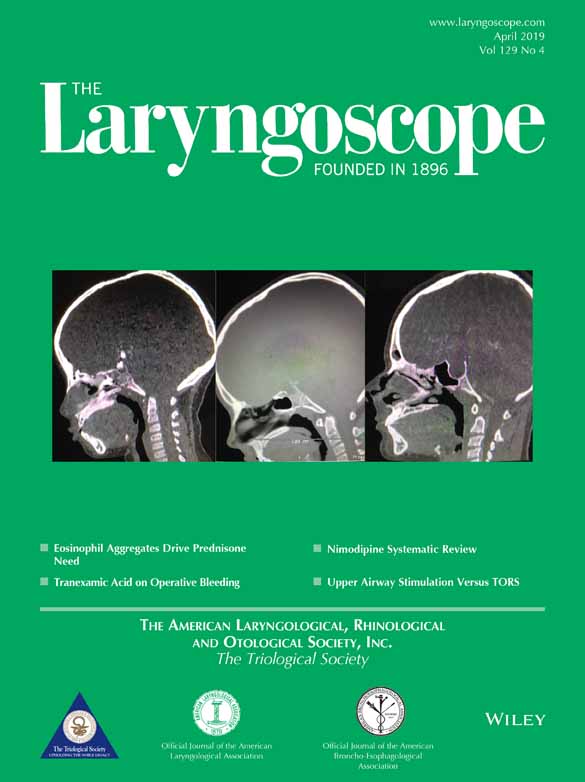Readmission after surgery for oropharyngeal cancer: An analysis of rates, causes, and risk factors
Editor's Note: This Manuscript was received on January 22, 2018, revised on February 27, 2018, April 3, 2018, May 7, 2018, May 23, 2018, and June 24, 2018, and accepted for publication on July 2, 2018.
This work was supported by the Dean's Leadership in Health and Science Scholarship at David Geffen School of Medicine (a.n.g.).
The authors have no other funding, financial relationships, or conflicts of interest to disclose.
Abstract
Objectives/Hypothesis
Determine the rate, diagnoses, and risk factors associated with 30-day nonelective readmissions for patients undergoing surgery for oropharyngeal cancer.
Study Design
Retrospective cohort study.
Methods
We analyzed the Nationwide Readmissions Database for patients who underwent oropharyngeal cancer surgery between 2010 and 2014. Rates and causes of 30-day readmissions were determined. Multivariate logistic regression was used to identify risk factors for readmission.
Results
Among 16,902 identified cases, the 30-day, nonelective readmission rate was 10.2%, with an average cost per readmission of $14,170. The most common readmission diagnoses were postoperative bleeding (14.1%) and wound complications (12.6%) (surgical site infection [8.6%], dehiscence [2.3%], and fistula [1.7%]). On multivariate regression, significant risk factors for readmission were major ablative surgery (which included total glossectomy, pharyngectomy, and mandibulectomy) (odds ratio [OR]: 1.29, 95% confidence interval [CI]: 1.06-1.60), advanced Charlson/Deyo comorbidity (OR: 2.00, 95% CI: 1.43-2.79), history of radiation (OR: 1.58, 95% CI: 1.15-2.17), Medicare (OR: 1.34, 95% CI: 1.06-1.69) or Medicaid (OR: 1.82, 95% CI: 1.32-2.50) payer status, index admission from the emergency department (OR: 1.19, 95% CI: 1.02-1.40), and length of stay ≥6 days (OR: 1.57, 95% CI: 1.19-2.08).
Conclusions
In this large database analysis, we found that approximately one in 10 patients undergoing surgery for oropharyngeal cancer is readmitted within 30 days. Procedural complexity, insurance status, and advanced comorbidity are independent risk factors, whereas postoperative bleeding and wound complications are the most common reasons for readmission.
Level of Evidence
4. Laryngoscope, 129:910–918, 2019




